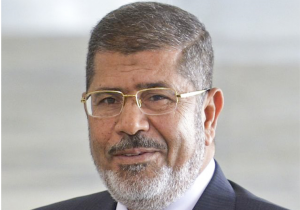An Egyptian court sentenced ousted President Mohamed Morsi to 20 years in prison without parole on Tuesday for the killing of protesters in December 2012, in a decision broadcast on state television.
It was the first ruling against Muslim Brotherhood leader Morsi since the army toppled him in 2013 after mass protests against his rule. The decision can be appealed.
The fall of veteran autocrat Hosni Mubarak in 2011 paved the way for what was unthinkable for decades – the Brotherhood ruling the most populous Arab country.
However in a twist of fate, Morsi’s handpicked army chief, Abdel Fattah al-Sisi, toppled him in 2013, bringing Egypt’s secular-nationalist state security apparatus and intelligence service back to power after mass protests against the Islamist president’s rule turned bloody.
A tough crackdown was then launched against the Brotherhood in which thousands were detained and hundreds were put on trial.
Morsi, who rose through the ranks of the Brotherhood before winning the presidency in 2012, was a polarizing figure during his troubled year in office.
His policies alienated secular and liberal Egyptians, who feared that the Brotherhood was abusing power.
Protests erupted in late 2012 after Morsi issued a decree expanding presidential powers – a move his supporters say was necessary to prevent a judiciary still packed with Mubarak appointees from derailing a fragile political transition.
Those demonstrations led to the deaths of protesters.
Prosecutors argue that Morsi and other Brotherhood leaders had encouraged the violence and so are responsible for the bloodshed. Morsi and his co-defendants deny the charges.
The Brotherhood survived numerous crackdowns and has been able to gain support through its charities because Egyptians longed for better services under a succession of autocrats.



